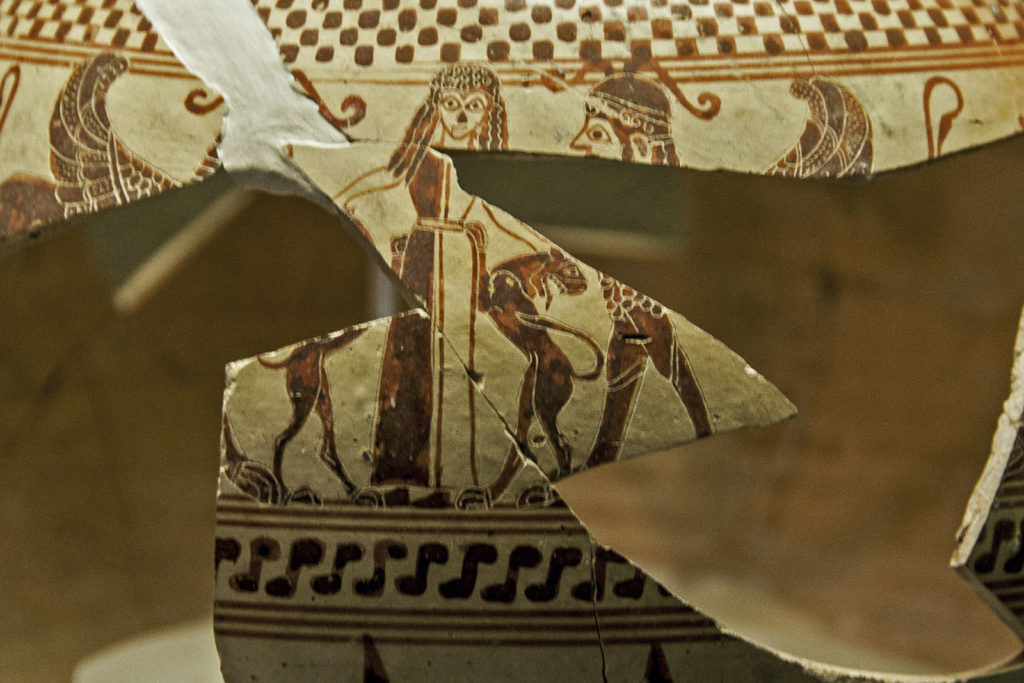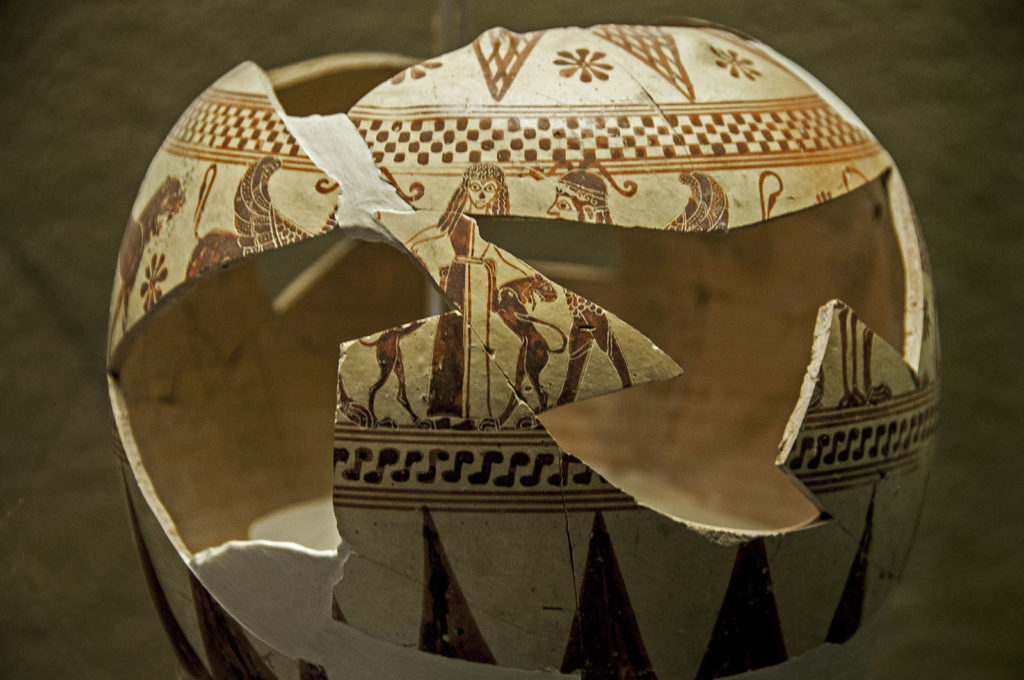Some findings in the heart of Ortygia have provided proof of ancient worship in this land.
Of particular interest was a Greek protocorinthian vase, called
oinochoe
 by the Greeks, which depicts a goddess identified in the figure of Artemis.
by the Greeks, which depicts a goddess identified in the figure of Artemis.
Apollo’s twin sister, Artemis was revered as the goddess of hunting and moonlight. The oinochoe fragment, the oldest proof of the worship of Artemis in Ortygia, shows the Greek goddess according to the iconography of the Potnia Theron, the “Mistress of Animals” who holds in her hands a deer and a leopard.
Artemis was one of the first deities introduced to Sicily. In Syracuse, a solemn feast took place in honour of the goddess considered, for all intents and purposes, the city’s protector, like the patron saints of modern times.
The feast, which took place between March and April, is remembered in the story of the siege of Syracuse by the Roman consul Marcus Claudius Marcellus, for its connotation of joy and wide participation of the inhabitants.
The importance of the worship of Artemis in Syracuse seems to be confirmed in a passage by Pindar who defines the whole island of Ortygia as the “home of Artemis”.
The goddess of hunting is also linked to worship at the
Fountain of Arethusa

.
by the Greeks, which depicts a goddess identified in the figure of Artemis.

